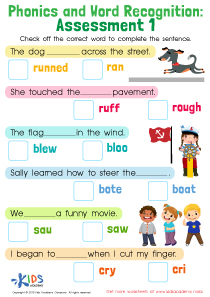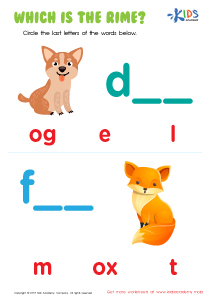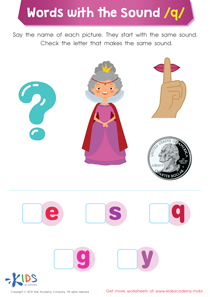Easy Letter Sounds Worksheets for Ages 5-8
6 filtered results
-
From - To
Make early literacy fun and engaging with our Easy Letter Sounds Worksheets, designed for children ages 5-8! These worksheets provide the perfect foundation for helping young learners recognize and practice letter sounds. With a variety of interactive and colorful exercises, children will enjoy tracing letters, matching sounds to pictures, and identifying beginning and ending sounds. Parents and educators alike will appreciate the structured, yet playful approach. Ideal for both at-home practice and classroom use, our worksheets are tailored to bolster early reading skills and boost confidence in young readers. Kickstart your child's reading journey today!
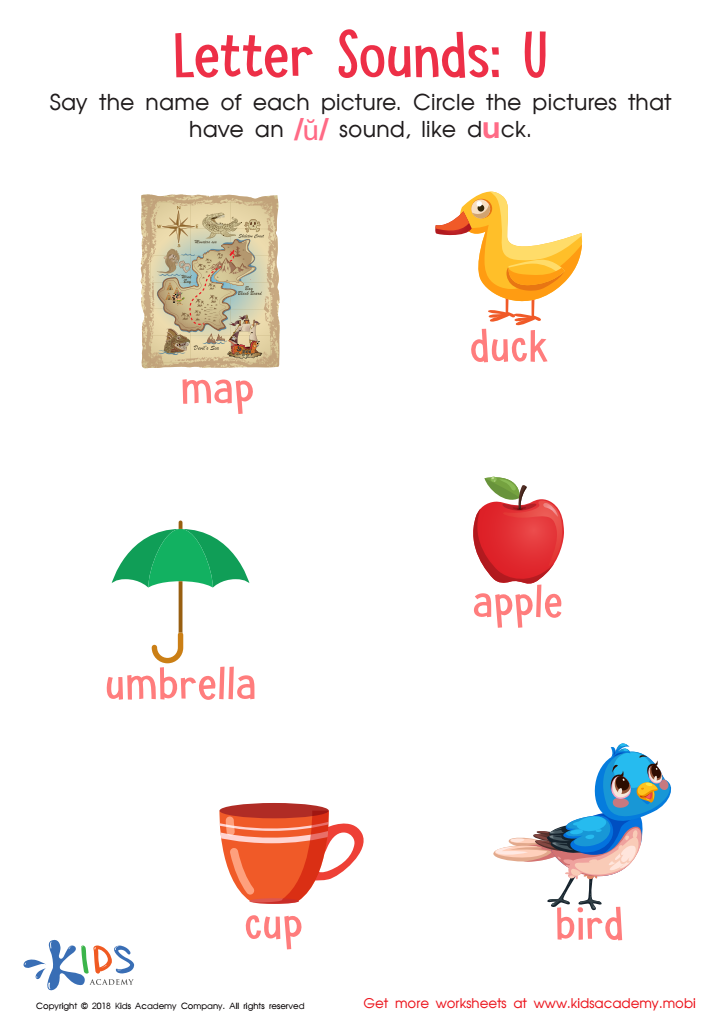

Letter U Sounds Worksheet
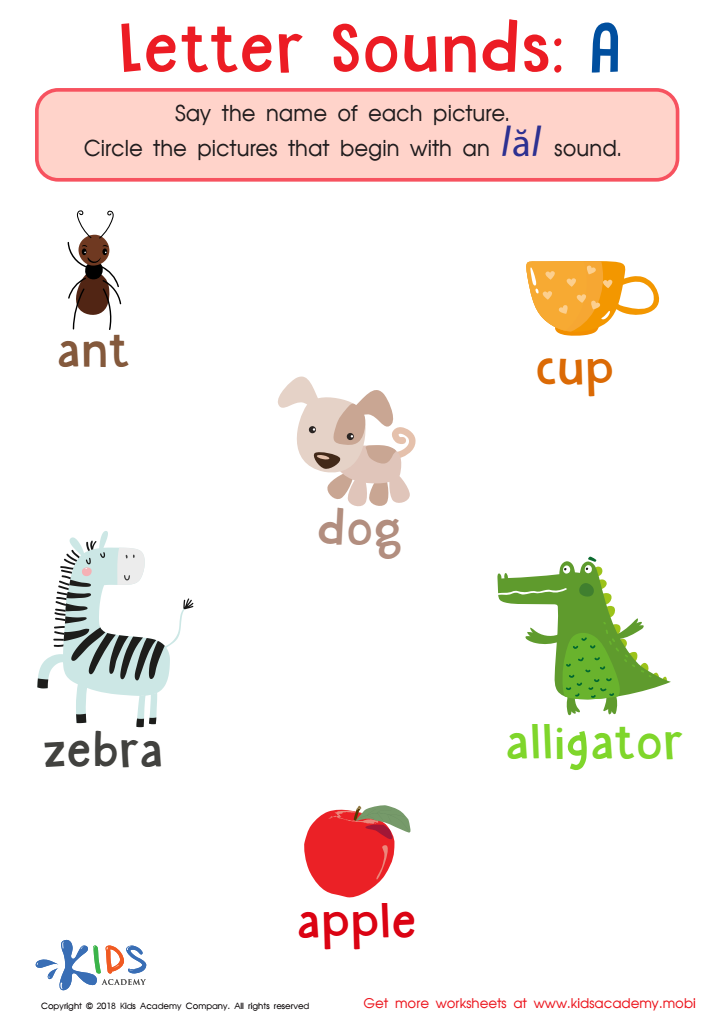

Letter A Sounds Worksheet
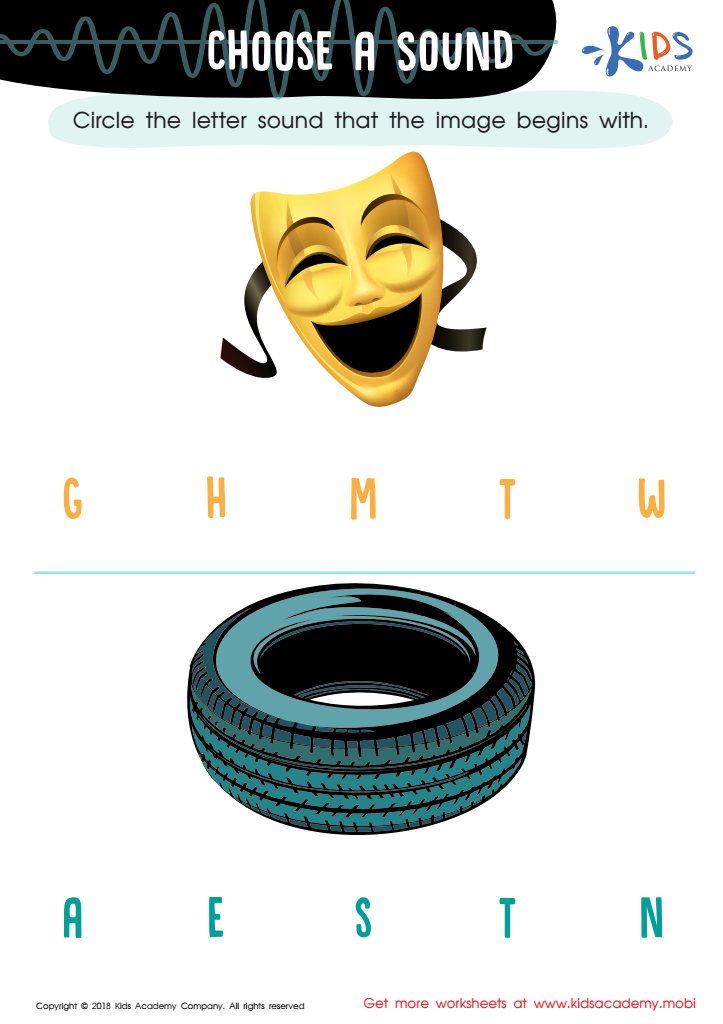

Choose a Sound Worksheet
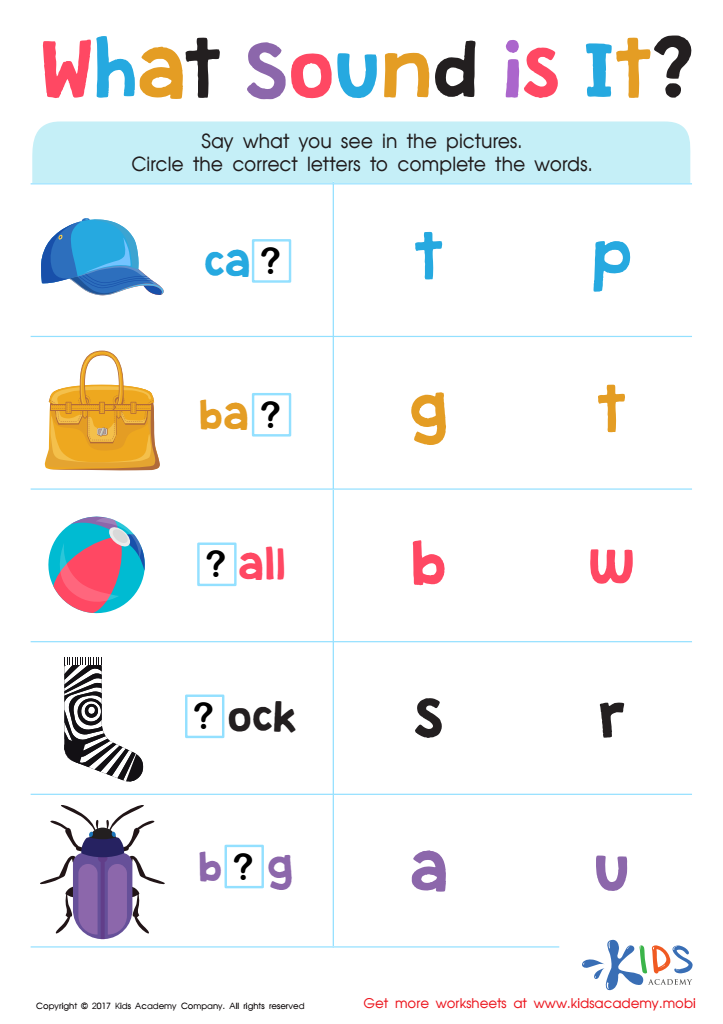

What Sound Is it? Worksheet
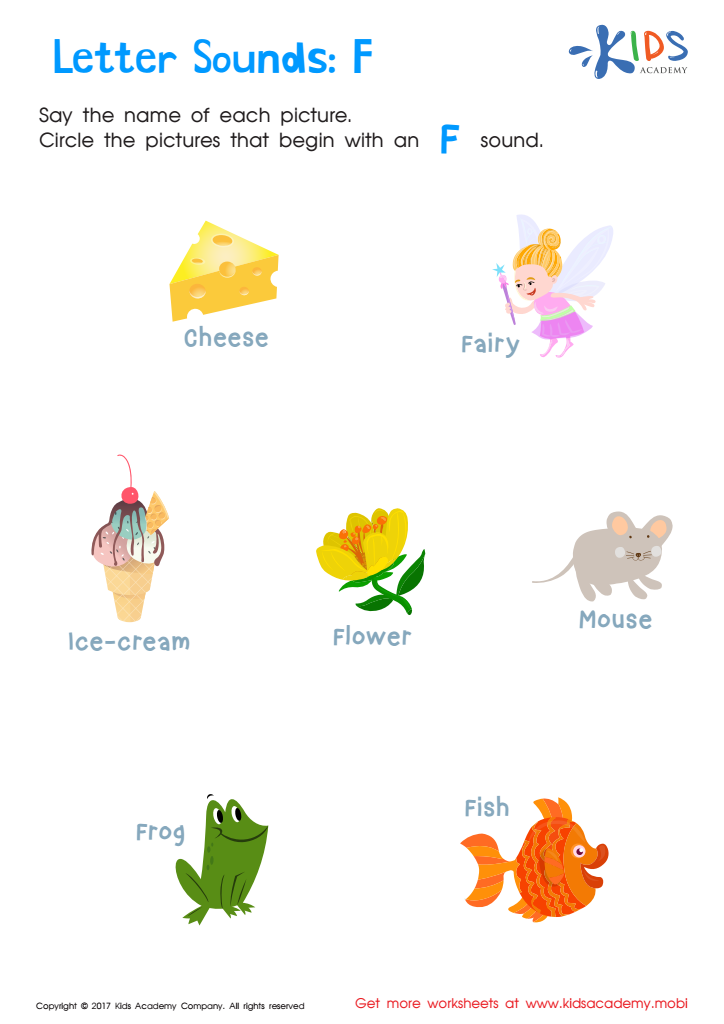

Letter F Sounds Worksheet
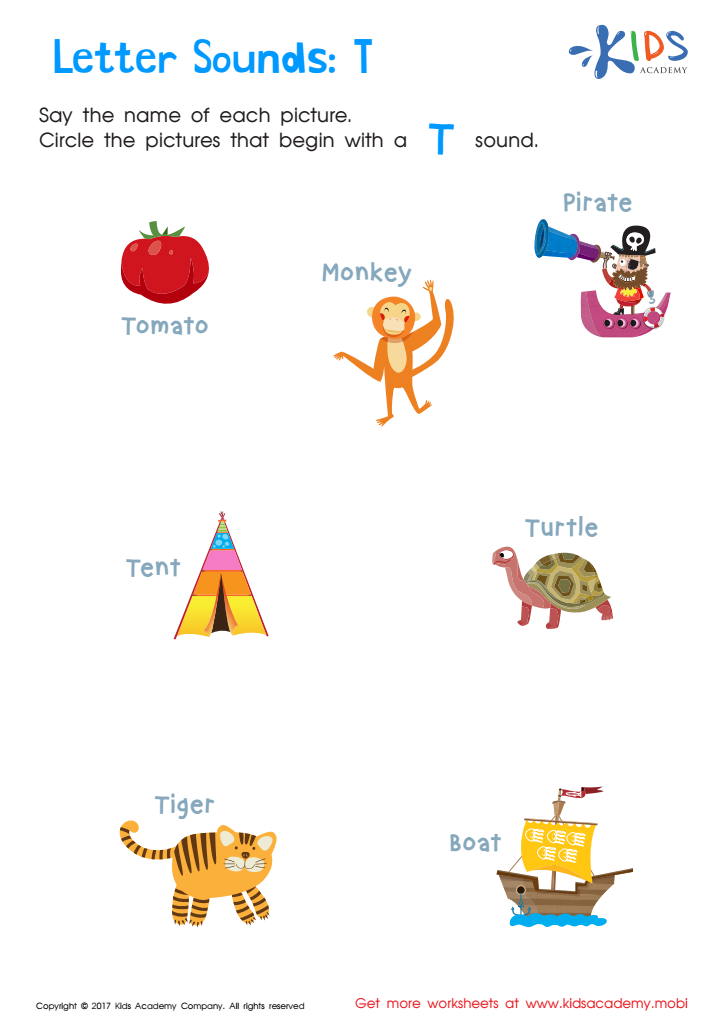

Letter T Sounds Worksheet
Understanding easy letter sounds is crucial for children ages 5-8 because it forms the foundation of their reading and writing abilities. At this early stage, children are developing phonemic awareness — the ability to hear, identify, and manipulate individual sounds in spoken words. Mastering letter sounds helps kids connect those sounds with written letters, an essential component of phonics instruction. When children can effortlessly link letters and their corresponding sounds, they become more confident and competent readers.
Teachers and parents should prioritize this skill because it is directly tied to academic success. Effective reading skills contribute to a better understanding of all subjects, from math to science, as reading is woven into almost every aspect of learning. Furthermore, early success in reading builds a child’s self-esteem and love for learning, influencing their attitude towards school and education positively.
Children who struggle with letter sounds may face challenges in reading fluency and comprehension. Intervening early through fun and engaging practices, like reading aloud, playing phonetic games, or using specialized learning apps, can mitigate these struggles. Therefore, investing time and resources in teaching and reinforcing easy letter sounds ensures children have the essential tools they need for long-term educational success and development.

 Assign to the classroom
Assign to the classroom







